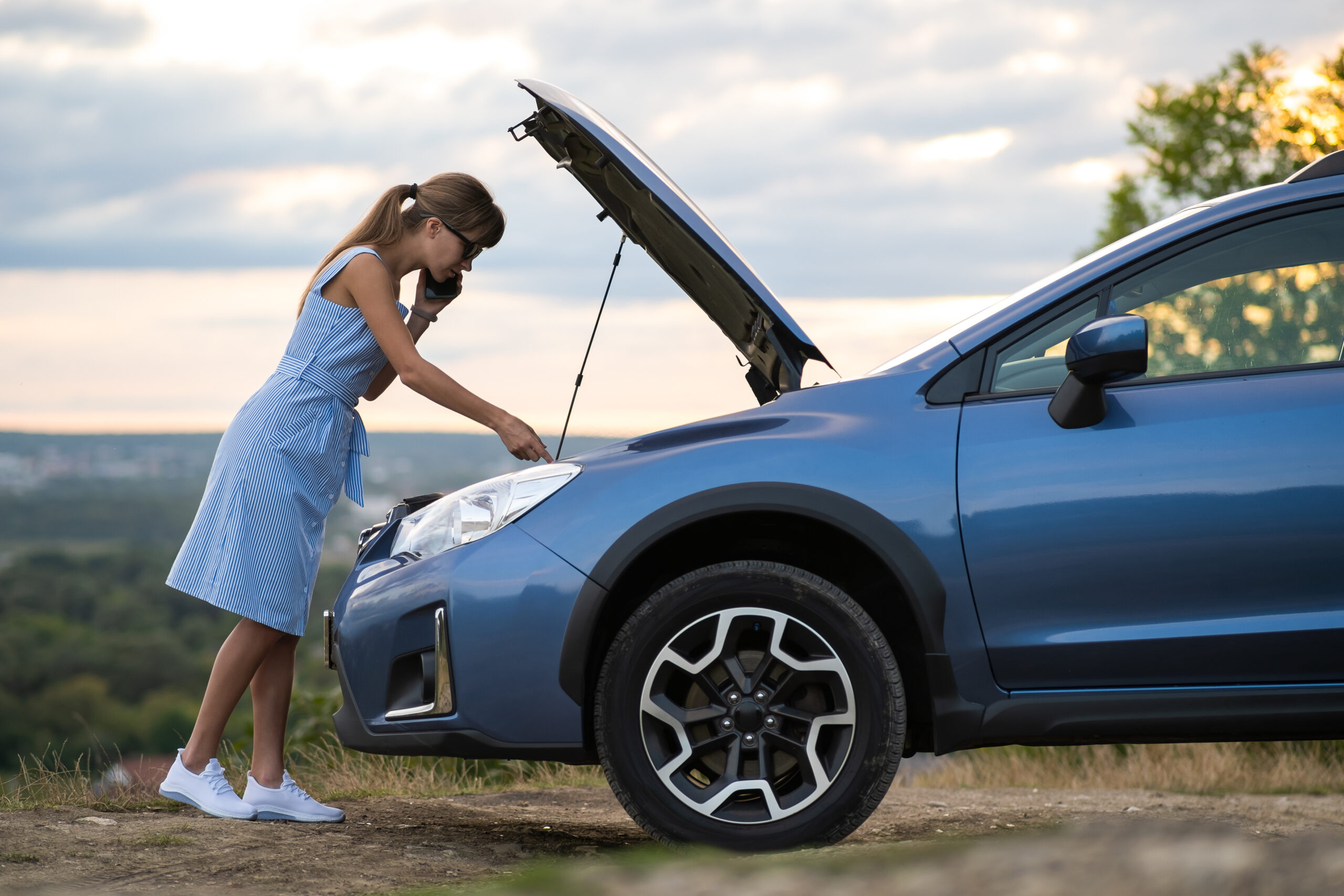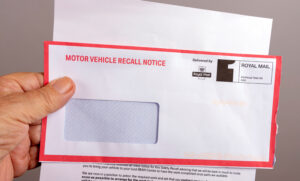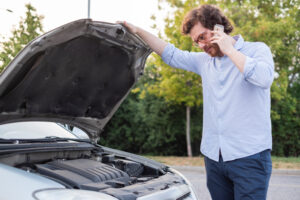
Vehicle recalls: Take the driver’s seat with safety issues
When you hear your vehicle has been recalled, it’s natural to go into panic mode. However, a recall is not necessarily a bad thing - it means the manufacturer is staying on top of safety regulations.
It becomes an issue when the manufacturers don’t communicate properly with vehicle owners or conduct repairs in a timely manner.
As recent class actions brought against Hyundai and Kia show, consumers can’t just assume that manufacturers will do the right thing. They need to be on the front foot when it comes to vehicle recalls.
In Australia, vehicle manufacturers and importers are required by law to conduct a recall when there is a safety-related defect in a vehicle or a vehicle component.
However, not all consumers are contacted in a timely manner, if at all. The onus is on them to find out if their vehicle has been subject to a recall. It’s one of the many reasons why the recall system in Australia needs an overhaul.
To ensure your rights under Australian Consumer Law are protected, you need to be aware of the following pitfalls.
Recall notifications sent to original owners
In Australia,vehicle recall notifications are sent to the original owners. This is because the relevant state or territory vehicle registration authorities hold the vehicle registration information, not the manufacturer. However, this information is not always updated when a vehicle changes ownership, which means that the manufacturer may not be aware of the current owner's details.

Furthermore, unlike some other countries, Australia does not have a national vehicle registration database. Instead, registration information is held separately by each state and territory, making it difficult to track and update ownership details across jurisdictions. As a result, vehicle manufacturers often rely on the original owners to ensure that they receive recall notifications and have their vehicles repaired or replaced as necessary.
While this inefficient system is in place, owners should regularly check if their vehicle has any outstanding recalls, particularly if the car is secondhand. The Federal Government has a dedicated Vehicle Recalls website, which provides information on current and past recalls.
Owners too often left to chase repairs and remedies
Another criticism is that the system relies on the cooperation of manufacturers and importers to identify and voluntarily recall vehicles with safety defects. This may not always occur in a timely manner, if at all. They often refuse to take responsibility for safety defects or try to shift the burden of cost and liability onto consumers.
Handle My Complaint has been inundated with complaints from frustrated vehicle owners unable to get manufacturers or dealerships to resolve often critical safety issues.
In February 2021, Hyundai recalled the ABS component for the 2014/15 Tucson. A month later, in March 2021, Anne-Maree Johnson’s car, a 2014 Hyundai ix35 caught fire in her garage 20 minutes after she returned home. When firefighters attended, they told Anne-Maree they had been briefed on the ABS fault with Hyundai Tucsons. The firefighters suspected the ABS was responsible for the fire with her car.
The Hyundai inspector removed the ABS Control Board from Anne-Maree’s car. However Hyundai has never responded to her requests for an explanation about the cause of the fire.
Almost two years later, on 7 December 2022, Hyundai issued a recall for the ABS on the 2014/15 Hyundai ix35. A few weeks after this recall was issued, on Christmas Day 2022, Jessica Wynne’s 2015 ix35 caught fire while she was driving.
This is just one example of the unacceptable amount of time between a serious event and a vehicle recall being issued.
Weak penalties for non-compliance
In Australia, there are penalties in place for manufacturers who fail to comply with recall notices. However, some have criticised these penalties as not being strong enough to encourage manufacturers to act quickly and efficiently. The penalties can vary depending on the severity of the issue, but they generally involve fines and potential legal action. Despite this, some manufacturers have been known to delay or avoid vehicle recalls due to the cost involved. This practice puts the safety of drivers and passengers at risk.
Effectiveness of vehicle recalls
Finally, there are concerns about the effectiveness of the recall process in ensuring that all affected vehicles are repaired. This is especially true in cases where vehicles have changed hands or the registered owner is no longer contactable. This has led to a significant number of vehicles remaining on the road with unrepaired defects.

Additionally, there have been instances where vehicle owners have not been notified of a recall, leading to missed repairs. These challenges have led to calls for greater transparency and accountability in the recall process. Suggestions have been put forth for more effective communication channels and improved record-keeping systems to ensure that all affected vehicles are identified and repaired promptly.
Significant recalls in Australia
Here are some of the biggest vehicle recalls in Australian history:
Hyundai ABS recall: In December 2022, Hyundai recalled almost 20,000 vehicles over fears they could catch fire. The cars' Anti-Lock Braking System (ABS) module could short circuit when the components were exposed to moisture. The vehicle could catch fire even when turned off.
Holden brake booster recall: In August 2022, Holden recalled almost 14,000 vehicles over a brake booster manufacturing defect. Drivers have been instructed to contact their local dealer in order to have the Electronic Brake Control Module (EBCM) software updated for free.
Ford engine fire recall: In 2022, Ford recalled more than 600,000 SUVs worldwide due to fire risks from possible cracked fuel injectors. The recall is due to a defect in the oil separator housing that could split and leak, potentially causing an engine fire.
Toyota stability control system recall: In April 2022, Toyota Australia recalled 26,000 vehicles due to potential software faults. The faults may cause the vehicle's stability control system to not turn on automatically when the vehicle is started. This issue could result in a loss of vehicle control.
Ford transmission fluid pump gears recall: In 2020, Ford Australia recalled over 20,000 vehicles due to a transmission flaw that increases the risk of a car accident. It was found out that the transmission fluid pump could fail, causing a loss of power to the vehicles.
Takata airbag recall: In 2018, more than three million cars were recalled. Australia’s biggest vehicle recall was due to faulty airbags manufactured by Japanese company Takata. The airbags could rupture during deployment, potentially causing serious injury or death.
What are the requirements for vehicle recall in Australia?
In Australia, vehicle manufacturers and importers are required by law to conduct a recall when there is a safety-related defect in a vehicle or a vehicle component. The requirements for a vehicle recall in Australia include:
- Identification of a safety-related defect - The manufacturer or importer must identify a safety-related defect that affects the vehicle or a component of the vehicle.
- Notification to the Department - The manufacturer or importer must notify the Department of Infrastructure, Transport, Regional Development and Communications and the Arts of the safety defect and initiate a recall.
- Notification to vehicle owners - The manufacturer or importer must notify all current registered vehicle owners and registered operators of the affected vehicles by mail or other means, such as email or phone, of the safety defect and the need to have the defect remedied.
- Remedial action - The manufacturer or importer must provide a remedy for the safety defect, which can include repair, replacement, or refund.
- Record keeping - The manufacturer or importer must keep records of the recall, including the number of vehicles affected, the actions taken, and the results of the recall.
- Reporting - The manufacturer or importer must report to the Department of Infrastructure, Transport, Regional Development, Communications and the Arts on the progress and outcome of the recall.
What should you do if your vehicle is listed on a recall list but have not been contacted by the manufacturer?
If you see your vehicle listed on a recall list but have not been contacted by the manufacturer, the best course of action is to contact the manufacturer directly. You can find the manufacturer's contact information in your vehicle's owner's manual or on the manufacturer's website.
Provide the manufacturer with your vehicle identification number (VIN), which can be found on your vehicle's registration papers or on the driver's side dashboard. The manufacturer should be able to confirm whether your vehicle is affected by the recall and provide you with instructions on how to proceed.
In most cases, the manufacturer will arrange for the repair or replacement of the affected part(s) free of charge. It is important to address any recall issues as soon as possible to ensure the safety of yourself and other road users.
What should you do if your vehicle is having problems but is not on the recall list?
If your vehicle is experiencing problems that are not on the recall list, you should take it to a licenced mechanic or dealership for an inspection. They can diagnose the problem and advise you on any necessary repairs.

You may also consider reporting the issue to the manufacturer, as it could be an indication of a wider problem that may lead to a future recall. Additionally, you can check with industry organisations or government agencies to see if there are any known issues with your vehicle make and model.
Keeping up with regular vehicle maintenance can also help prevent and address potential issues.
What should you ask the dealer or manufacturer to give you after a recall action is completed on your vehicle?
Ask for a completion letter or certificate from the dealer or manufacturer. This letter certifies that the necessary repairs or modifications have been carried out on your vehicle to address the recall issue. The completion letter should include details of the recall, the repairs or modifications that were carried out, and the date that the work was completed.
It is important to keep this letter for your records, as it may be required as proof of compliance with the recall notice or to demonstrate the history of your vehicle in the future.
Should you be provided a loan car if your vehicle needs a recall repair?
There is no legal requirement for manufacturers or dealerships to provide a loan car or a replacement vehicle during a recall repair. However, some manufacturers and dealerships may offer this as a courtesy to their customers. It is best to check with your manufacturer or dealership about their policies regarding loan cars or replacement vehicles during a recall repair. It is important to note that any costs associated with a loan car or rental car will generally be the responsibility of the vehicle owner, unless the manufacturer or dealership has explicitly stated otherwise.
What do you do if the problem your car was recalled for persists?
If you have had your vehicle repaired as part of a recall action, but the problem persists, you should contact the dealer or manufacturer immediately. They may have to reinspect your vehicle and, if necessary, perform additional repairs. In some cases, they may also offer you a refund, replacement vehicle or compensation if the defect cannot be fixed.
It's important to keep a record of any communication with the dealer or manufacturer, including dates, times, and names of people you spoke to, as well as a description of the issue and any proposed solutions. If the issue cannot be resolved with the dealer or manufacturer, you may need to escalate the matter to a consumer protection agency or seek legal advice.
Can your vehicle insurance be impacted if a recall is not actioned?
In Australia, not taking action on a vehicle recalls may impact your insurance coverage. It is not a legal requirement to comply with a recall notice. However, failing to do so could result in the vehicle not meeting the manufacturer's specifications and potentially affecting the vehicle's safety.
As a result, an insurer may deny a claim or void a policy if they determine that the failure to address the recall issue contributed to the cause of an accident or damage to the vehicle.

It is important to note that insurance policies can vary. So it is best to check with your insurer to understand their specific requirements and coverage in relation to vehicle recalls.
Can my vehicle registration be cancelled if I don’t respond to a recall?
This is highly unusual but when a recall is compulsory, the obligation does fall on the consumer to ensure they return the vehicle for assessment and repair.
In 2018, the Federal Government took the unprecedented step of cancelling the registration of about 2600 vehicles that were fitted with defective Takata airbags and had not been repaired despite being subject to a compulsory recall. This is because it was mandatory for vehicle owners to have the airbags replaced.
The government enforced the recall and cancellation of registration to ensure the safety of drivers and passengers. Vehicle owners were given ample notice to have their vehicles repaired. Those who failed to comply had their registration cancelled until the airbags were replaced. The cancellation of registration meant that the affected vehicles were not roadworthy and could not be driven legally until the airbags were replaced, and their registration was reinstated.
As you can see, vehicle recalls can be problematic. While there are protections in place for consumers, they can be unwieldy and difficult to navigate, particularly if the manufacturer is refusing to take responsibility. If you experience any issues with your vehicle recall, lodge a complaint with us and we’ll help you handle it.






